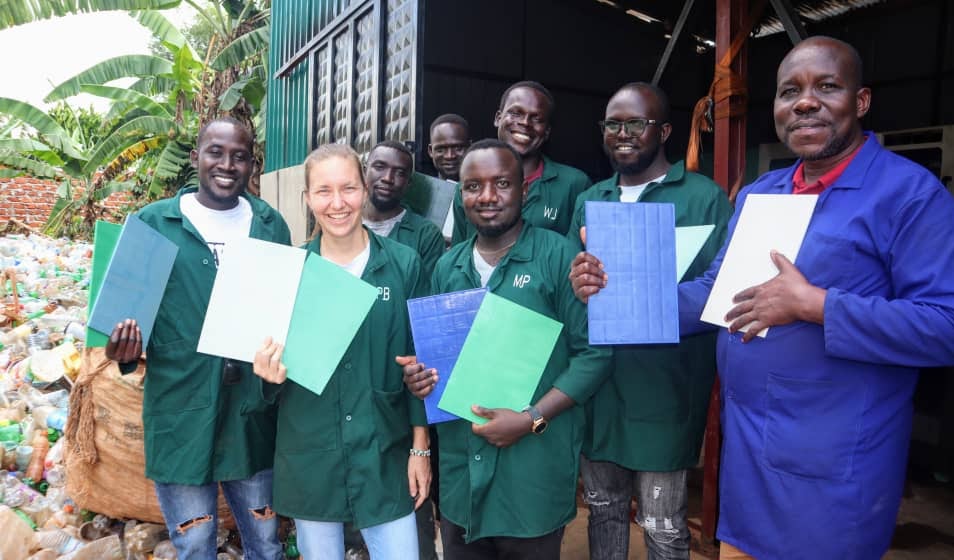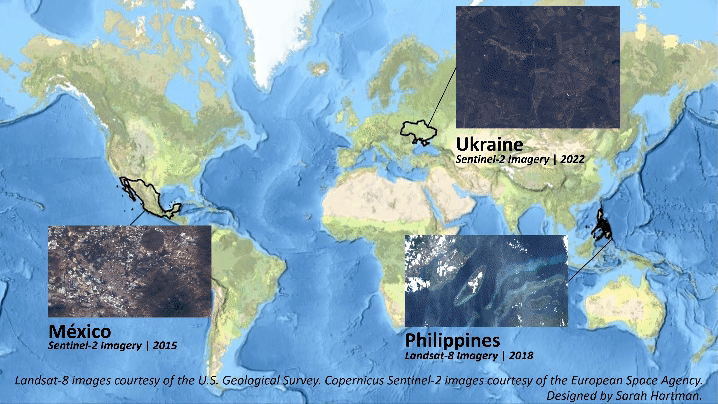Paige Balcom, the co-founder, co-CEO and CTO of Takataka Plastics, is changing Uganda — one plastic bottle at a time.
In 2017, Balcom, who earned her Ph.D. in mechanical engineering at the University of California, Berkeley, was settling into campus life after spending a year in Uganda on a Fulbright research grant. Only a month into her first semester, Balcom heard about the Rudd Family Foundation Big Ideas Contest, which encourages and empowers students to solve social issues. She knew she wanted to get involved, but was initially stumped for a meaningful idea. While talking to her father about potential research topics, however, he reminded her about the pollution problems they had both witnessed in Gulu, Uganda. Plastic waste is a significant problem there, affecting the environment, people, and ecosystems, she says.
“The streets are full of trash — full of plastic waste — and a lot of it was burned too, creating soot and air pollution and toxic fumes. I wanted to make sure that Ugandans also thought it was a problem, so I started talking to some Ugandan friends. They agreed that plastic waste is a really big issue,” Balcom explains. Once she found the problem she wanted to solve, she formed a team with other students on campus. “We went to the library one Saturday morning less than a week before the Big Ideas proposal was due, and just sat there for hours doing a brainstorming session,” she adds.
The beginnings of Takataka Plastics came together during that long Saturday among the stacks. The team came up with a company name, Trash to Tiles, and envisioned a process where polyethylene terephthalate (PET) plastic bottles — the kind used for bottling water and soda — would be transformed into usable products such as building tiles and furniture. The process would also aid people in the community by creating jobs and income.




